Last month, Ray Sexton invited me on his Lift High the Cross podcast to explain Catholic teachings to Protestants. Ray hopes to become a Lutheran pastor and interviews pastors from various Christian branches, although I was the first Catholic. He wanted to understand Catholic teachings, so I explained them in a way I hope Protestants can understand. I think so often Protestant misunderstandings of Catholic teaching lead to further issues. Let’s begin with clarity, and then hopefully move towards unity.
Here are the topics we discussed:
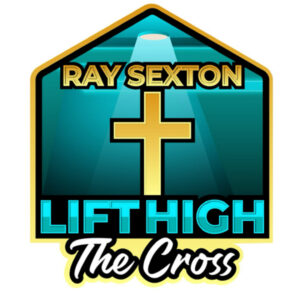
- What’s the difference between the Roman Catholic Church and the Eastern Orthodox Church?
- How do Catholics honor Mother Mary? And is she a perfect being?
- Do Catholics believe they’re saved by works?
- Why do Catholics disagree with Martin Luther’s take on the presence of the Eucharist?
- Do Catholics believe protestants aren’t Christians?
- Is the Pope infallible?
- Did Jesus Christ start the Roman Catholic Church?
- Why can’t Catholic priests get married?
I hope this podcast helps Protestants understand our beliefs even if they don’t accept them.
Here is the podcast episode (YouTube, Spotify).
If you want to have me on your podcast, I am generally open to it. Please use the contact form.

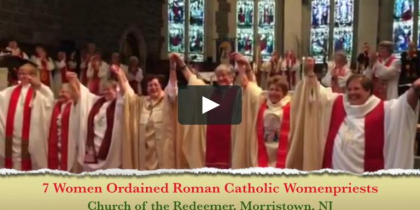
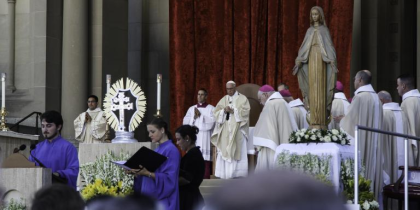

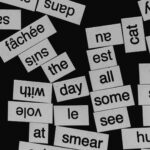
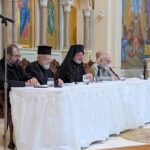
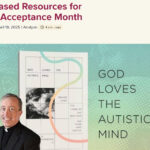

Protestants are declared heretics, ecumenical councils cannot be abrogated, and anyone who denies this is a heretic. You’re all guilty of Modernist errors like religious pluralism, and should be condemned. If the church hierarchy will not, that does not make you correct: they will be condemned by God.
All the American liberal “Catholics” will burn in Hell with the Protestants, homosexuals and baby killers. You’re in league with Satan.
Thomas Aquinas (1225–1274)
Although not addressing Protestantism directly (as it arose after his time), Aquinas wrote extensively on heresy and the necessity of unity with the Catholic Church.
Summa Theologiae (II-II, Q. 11, Art. 3):
“Heresy is a species of unbelief, belonging to those who profess the Christian faith, but corrupt its dogmas. … Those who remain obstinate in heresy are to be condemned as they are severed from the unity of the Church.”
Saint Robert Bellarmine (1542–1621)
A Jesuit cardinal and one of the most prominent Counter-Reformation theologians, Bellarmine wrote extensively against Protestantism. He upheld the Catholic Church as the sole means of salvation, aligning with the Council of Trent’s decrees that condemned Protestant doctrines as heretical.
From De Controversiis,
“Outside the true Church of Christ there can be no salvation. The sects of heretics and schismatics are, therefore, excluded from the Church, and hence they cannot attain eternal life if they die in their state of separation.”
Saint Alphonsus Liguori (1696–1787)
A Doctor of the Church, he explained that Protestantism led souls away from salvation. He often emphasized the necessity of the sacraments, which Protestants reject or interpret differently, for eternal life.
“How thankful we ought to be to God for having made us members of the true Church of Jesus Christ, which is the Catholic Church, for in that Church alone is salvation.”
– The History of Heresies
Pope Pius IX (1792–1878)
In his encyclical Quanta Cura and the attached Syllabus of Errors (1864), Pius IX condemned liberalism, religious pluralism, and Protestantism as grave errors. He maintained a strict interpretation of Extra Ecclesiam nulla salus (“Outside the Church there is no salvation”).
“It is an error to say that ‘Protestantism is merely another form of the same true Christian religion, in which it is possible to please God equally as in the Catholic Church.'”
– Syllabus of Errors
Encyclical Letter Quanto Conficiamur Moerore, 1863:
“We must hold as of faith that no one can be saved outside the Apostolic Roman Church, that this is the only ark of salvation, and that whoever does not enter it will perish in the flood.”
Father Leonard Feeney (1897–1978)
A 20th-century Jesuit priest, Feeney was excommunicated for disobedience (not his views, he was later reconciled). He understood that non-Catholics, including Protestants, could not achieve salvation unless they explicitly joined the Catholic Church.
“The dogma of the Faith is this: that no one can be saved except by being united to the Catholic Church before death. This includes all heretics and schismatics.”
Archbishop Marcel Lefebvre (1905–1991)
Founder of the Society of St. Pius X (SSPX), Lefebvre was critical of Protestantism and the modern ecumenical movement, arguing that they undermined the Catholic Church’s role as the sole path to salvation.
“Protestantism is not a branch of Christianity; it is an entirely different religion, a rebellion against the Church. Their worship is devoid of grace because they lack the true sacraments.”
Yes, Protestants are heretics. But we should work to help them understand the truth more than work to condemn them.
p.s. I deleted some links from your comment as they were claiming to teach Catholic doctrine but were form sources I have seen distort Catholic teaching in the past.